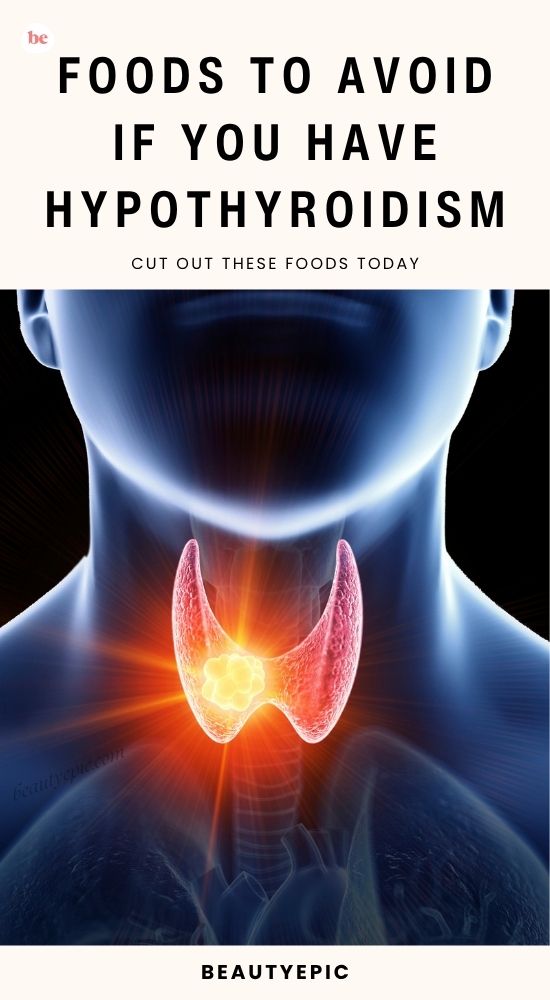
Important: This article is for informational purposes only. Please read our full disclaimer for more details.
The thyroid is a small butterfly-shaped gland in your neck, but it plays a huge role in regulating your body’s metabolism, energy levels, and hormone balance. When the thyroid doesn’t function properly—whether due to hypothyroidism, hyperthyroidism, or autoimmune conditions like Hashimoto’s disease—diet becomes an important piece of the puzzle.
Certain foods can interfere with thyroid hormone production, absorption of medication, or worsen inflammation. While diet alone cannot cure thyroid disorders, being mindful of food choices can support overall thyroid health and improve quality of life.
Five Foods You Should Limit or Avoid for Better Thyroid Function
1. Cruciferous Vegetables (When Eaten Raw)
Vegetables like broccoli, cauliflower, cabbage, kale, and Brussels sprouts are nutrient-dense, but when consumed raw in large quantities, they contain goitrogens—compounds that may interfere with iodine uptake by the thyroid (1)(2). Since iodine is essential for thyroid hormone production, excessive raw cruciferous intake could be problematic for those with hypothyroidism.
Tip: Cooking these vegetables significantly reduces goitrogen levels, making them safer to eat in moderation.
2. Soy and Soy-Based Products
Soy contains isoflavones, a type of phytoestrogen that may impair the thyroid’s ability to produce hormones, especially in people who already have low iodine levels. Studies published in the Journal of Clinical Endocrinology & Metabolism suggest that soy can interfere with thyroid medication absorption as well (3).
Tip: If you consume soy, keep it in moderation and avoid eating it too close to your thyroid medication.
3. Processed Foods High in Sugar and Refined Carbs
Thyroid issues often slow metabolism, making weight management difficult. Diets high in sugar and refined carbs can worsen fatigue, contribute to insulin resistance, and promote inflammation—all of which place added stress on the thyroid (4).
Tip: Replace refined carbs with whole grains, and swap sugary snacks for fruits or nuts.
4. Fried and Fatty Foods
Excessive unhealthy fats, particularly trans fats and highly processed oils, may hinder thyroid hormone production and impair medication absorption (5). A high-fat diet can also increase inflammation and cholesterol levels, which are already concerns for many with hypothyroidism.
Tip: Opt for healthier fats like olive oil, avocado, and omega-3-rich foods such as salmon and chia seeds.
5. Excessive Caffeine
That extra cup of coffee might give you a temporary energy boost, but too much caffeine can disrupt sleep patterns, worsen anxiety, and interfere with thyroid medication absorption if taken together (6).
Tip: Keep caffeine intake moderate, and always take thyroid medication with water on an empty stomach, waiting at least 30–60 minutes before coffee or tea.
What Science Says About Diet and Thyroid Function
- A 2016 study in Nutrients highlighted how iodine, selenium, and zinc play essential roles in thyroid health, while certain foods like soy and cruciferous vegetables may inhibit hormone synthesis in high amounts (7).
- Research in the Thyroid Journal confirmed that dietary habits, including the overconsumption of processed foods, can contribute to poor thyroid outcomes and worsen symptoms (8).
- Clinical trials also suggest that meal timing and food interactions (such as soy or coffee with medication) directly affect thyroid treatment efficacy.
This shows that while nutrition won’t “fix” thyroid disorders, it can significantly support overall management.
Frequently Asked Questions (FAQ’S)
1. Can I eat cruciferous vegetables if I have thyroid issues?
A. Yes, but preferably cooked and in moderation. Cooking reduces goitrogenic compounds, making them less likely to interfere with thyroid function.
2. Does everyone with thyroid problems need to avoid soy?
A. Not necessarily. Small amounts may be safe, but it’s best to avoid soy within a few hours of taking thyroid medication to prevent absorption issues.
3. Are gluten and dairy harmful for thyroid health?
A. Some studies suggest that people with autoimmune thyroid conditions like Hashimoto’s may benefit from reducing gluten and dairy, as these can trigger inflammation in sensitive individuals. However, this isn’t necessary for everyone.
Final Thoughts
Living with thyroid issues means paying closer attention to what you eat. While you don’t need to eliminate entire food groups, avoiding excessive soy, raw cruciferous vegetables, processed junk, and high-fat or caffeinated foods can make a noticeable difference. Instead, focus on whole, nutrient-rich meals with adequate iodine, selenium, and zinc.
Remember: Each person’s thyroid condition is unique, so it’s always best to consult with an endocrinologist or a registered dietitian for a personalized nutrition plan.
















